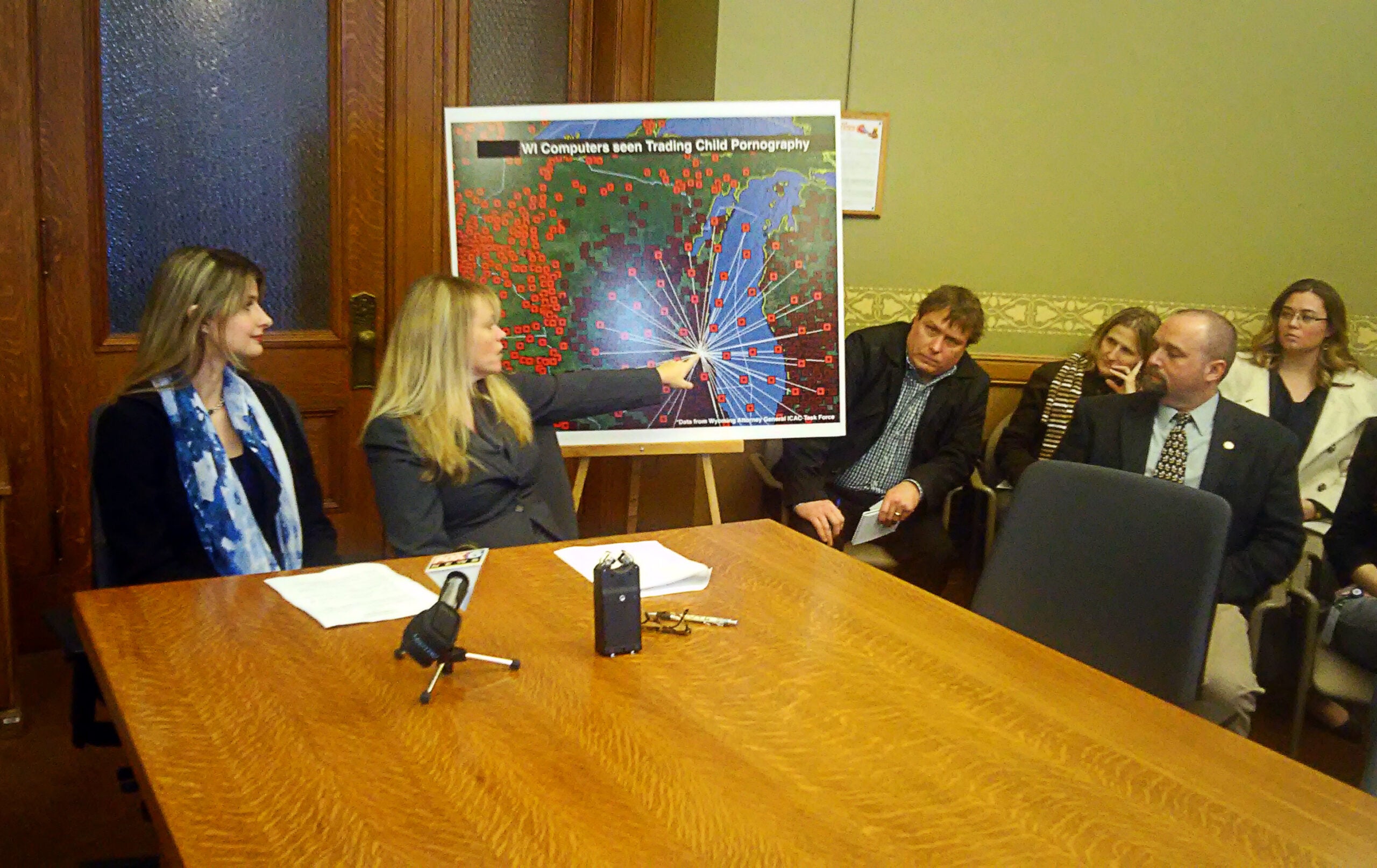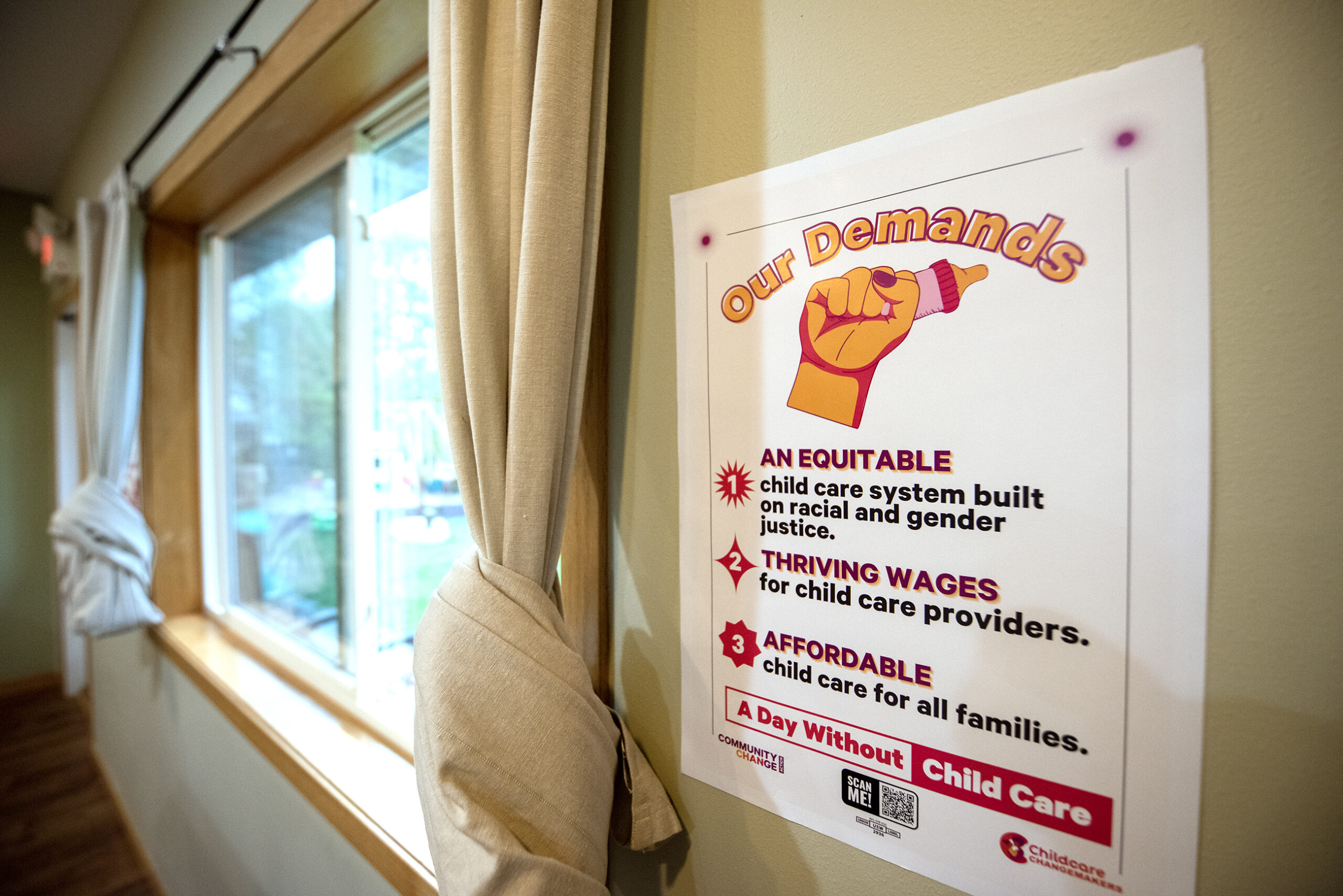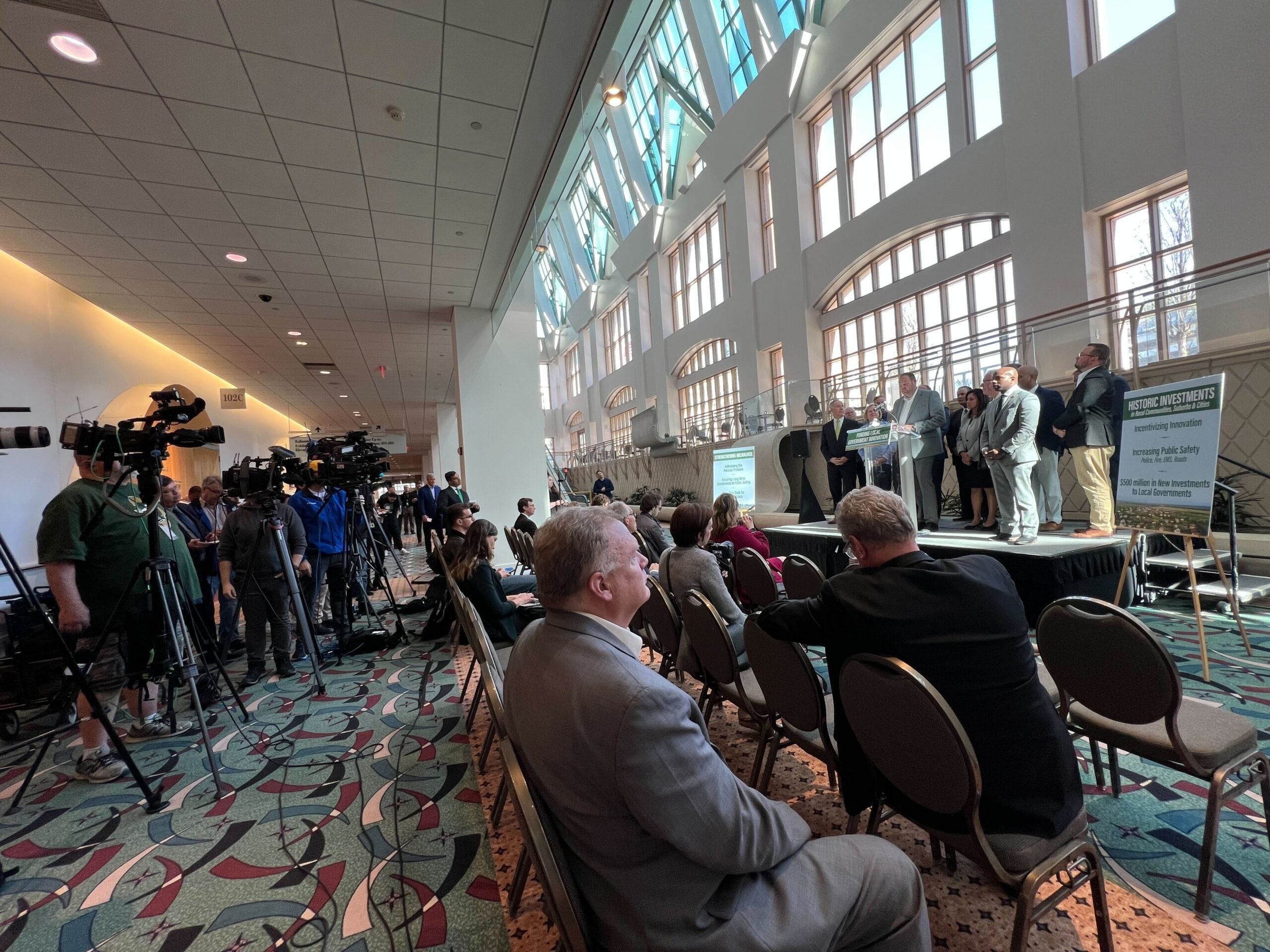Attorney General Brad Schimel says a proposal to boost funding for tracking down Internet child sex predators would give law enforcement much-needed tools to track down people who make, sell, and trade child pornography.
Schimel said there are more than 7,000 people in Wisconsin using the Internet to distribute child pornography. The bill, modeled on laws passed in several other states, would raise $2 million from fees charged to anyone convicted of a felony or misdemeanor.
Schimel said that money would pay for more training and better technology to trace predators’ computer addresses.
Stay informed on the latest news
Sign up for WPR’s email newsletter.
“We have the information to try to track down many of the individuals who possess these despicable materials,” he said. “We just need the means to determine which local law enforcement agency should be referred the case for investigation and prosecution.”
Schimel said criminals should should help cover the cost of fighting crime. However, some Democrats disagree: While they support the increased funding, they object to raising it with fees collected from offenders who are often unable to pay them. They’re backing an amendment that would raise taxes to cover the cost.
“I guarantee you the state’s check is going to cash faster than trying to get (funding) $20 at a time from some drunk driver,” said Rep. Evan Goyke, D-Milwaukee.
The amendment Goyke and other Democrats are backing would delete the fee and instead include a $2 million appropriation to cover the cost of increased training and technology in the next state budget.
Democrats also object to a provision in the bill that grants the Department of Justice the ability to issue an administrative subpoena to an Internet provider so investigators can more quickly obtain a suspect’s physical address. They say all subpoenas should be reviewed by a judge before they’re issued.
Schimel said the federal government already uses the procedure for investigating federal crimes. He also argues that the subpoena only grants investigators access to an address, and that investigators would still have to get a judge to approve a search warrant before they could enter a suspect’s home and search for computer files.
He added that Internet provider companies are unwilling to release a subscriber’s address unless they are served with a subpoena.
The legislation aimed would be called “Alicia’s law” if it wins approval, named for Alicia Kozakiewicz. At age 13, Kozakiewicz was abducted, raped, tortured, and chained in a basement in Pittsburgh for four days. Police tracked the computer address of the predator who was uploading videos of her abuse and rescued her.
Kozakiewicz told lawmakers this week that more needs to be done to protect children who are being abused by child pornographers.
“For most of those Wisconsin children, there won’t be a rescue,” said Kozakiewicz. “Law enforcement in Wisconsin, just like every other state in the U.S., is completely overwhelmed and outnumbered. They don’t have the resources they need.”
The proposal was authored by two Republican lawmakers, Rep. Joel Kleefisch and Sen. Van Wanggaard.
Wisconsin Public Radio, © Copyright 2024, Board of Regents of the University of Wisconsin System and Wisconsin Educational Communications Board.





